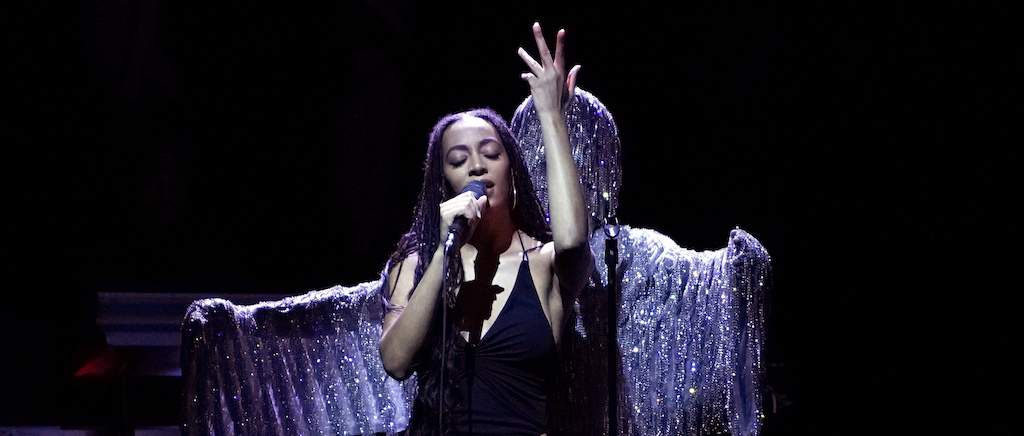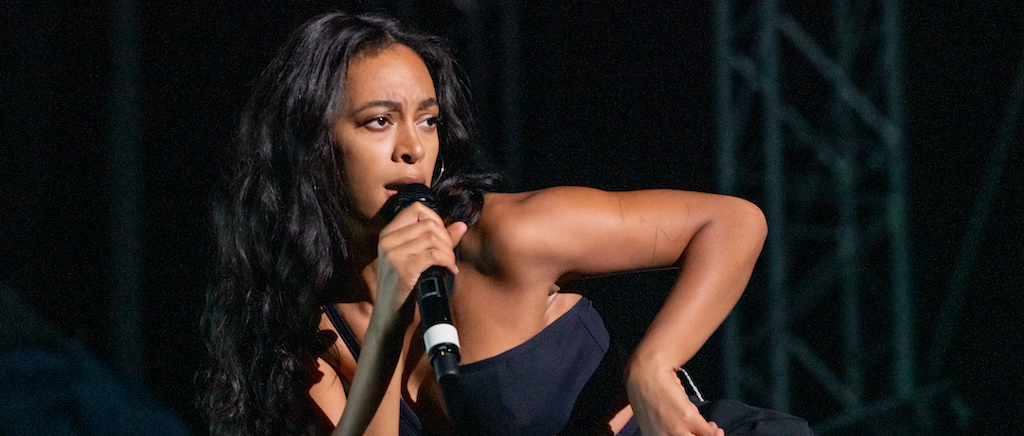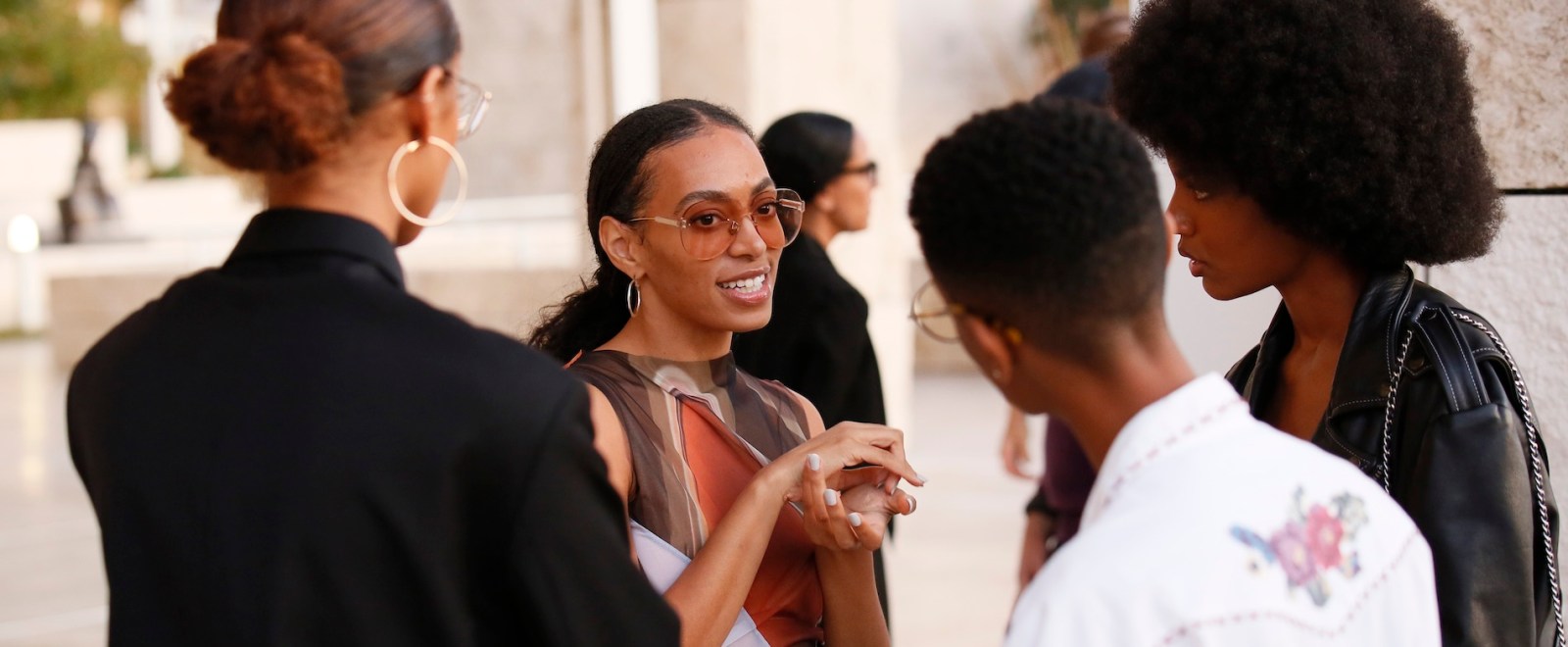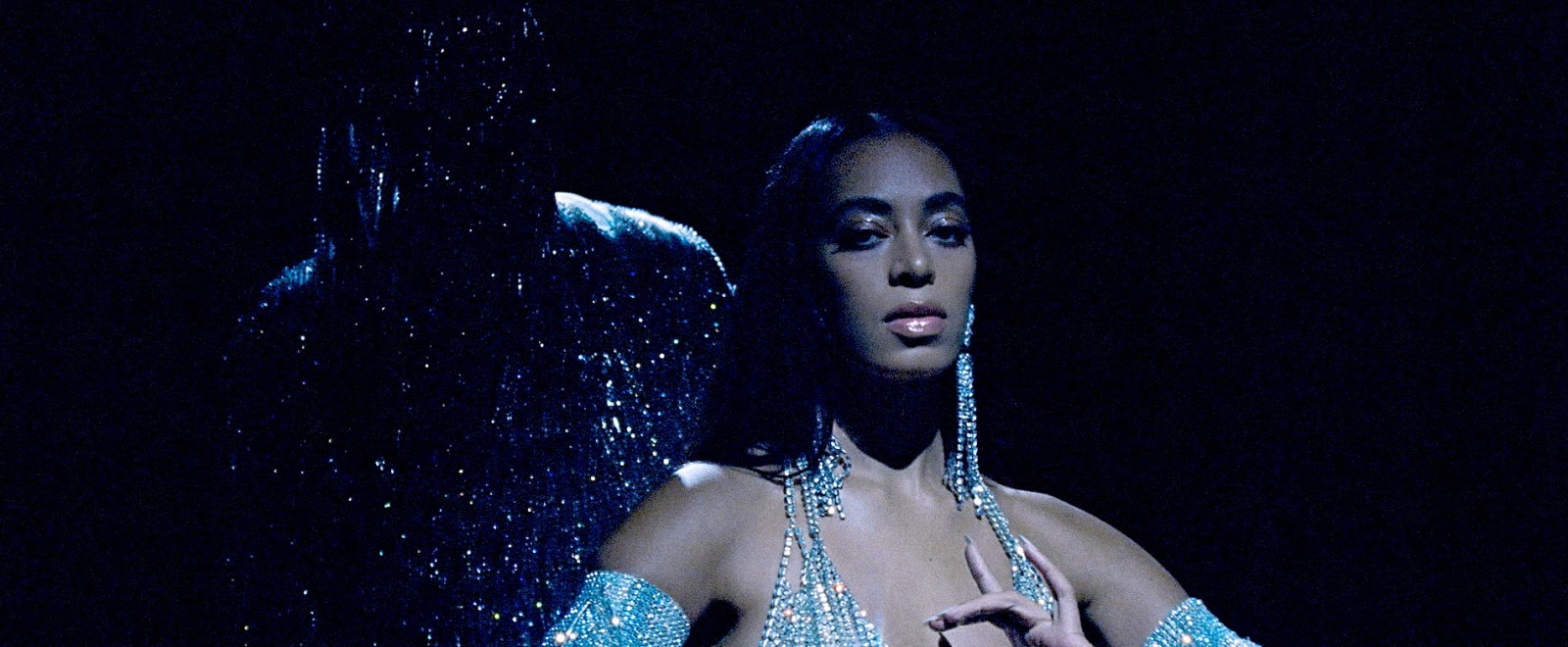
Solange Knowles is one talented lady. Completely aside from being Beyonce’s sister — something that likely both benefitted and hindered her own music career over the years — Solange has been a groundbreaking musician, film director, and even art curator over the past few years. Her work is a lightning rod of empowerment and representation for Black women, and she’s always looked super cool doing it. Rumor has it that she’s also nice with her hands when people disrespect her big sis.
However, while talent might be genetic and/or generational, it’s not always a given no matter how gifted your family is. Solange’s son, Danieal Julez J. Smith Jr., seemingly proved as much recently when he posted a video to social media showing off his own music. Let’s just say… It didn’t go well. On Sunday, the 17-year-old, who goes by the stage name Julez, posted a snippet to TikTok in which he raps along to one of his songs in his studio. Here it is:
There are a few issues here, mainly that the beat seems to be a loose guideline for young Julez. The mix is something that can probably be addressed at a later date, but between Julez’s listless delivery and generic bars, fans on Twitter had plenty to say about how much work the young aspiring rapper will need to put into becoming a commercially viable artist in his own right. Maybe he can tap Uncle Jay-Z for help? (Considering the relationship between Jay and Solange, let’s drop that pin somewhere between “unlikely” and “impossible.”)
his mom is solange, his auntie is beyoncé, and his uncle is jay z, but he doesn’t have a lick of musical talent… https://t.co/gtngU9ipHL
— peace for pride month
(@starshineclay) June 5, 2022
Your mum is Solange
Your auntie is Beyoncé
Your uncle is Jay z
And your cousin Blue has a Grammy ???? What is this juelz https://t.co/rXdpP8jMJj— Mimi The Music Blogger (@mdaixo) June 5, 2022
Imagining 3 of your family members being Solange, Beyoncé, and JAY Z and you put out this shit https://t.co/Ec99gduvKS
— Chazz
(@chazze3) June 6, 2022
Having music this ass when Solange is your mother, Beyoncé is your aunt, and Hov is your uncle has to be punishable by law. https://t.co/VVLrDA2M18
— Kirin (@hadouren) June 5, 2022
idk why kids dont like being nepo babies anymore like its ok! your mama solange, your aunt bey and your uncle jay…theres nothing wrong with being a socialite. now you embarrassing them
https://t.co/nMGWsqfc9n
— ex dominican (@TAEGlJlNS) June 5, 2022
Solange had that baby studying abroad, learning French, studying piano- Julez went to his dad’s one summer, got the Wifi password & been Hell ever since lmao bless
his heart pic.twitter.com/opl72gsdyk— Miss Frizzle (@OhHaiBae) June 6, 2022
Solange PLEASE stop sending your son to his daddy house
— Jen Lo (@AJadeFox) June 5, 2022
Fortunately for him, these are all correctable mistakes, and he’s only 17 — he’s got plenty of time (and now, plenty of … ahem… “constructive” criticism) to get started on fixing them. Besides, I used to work at a Boys & Girls Club recording studio and I’ve heard way worse from kids his age. Still, it’s probably going to be awkward when his little cousin Blue flexes her Grammy Award at the family reunion while giving him that signature side-eye of hers.











